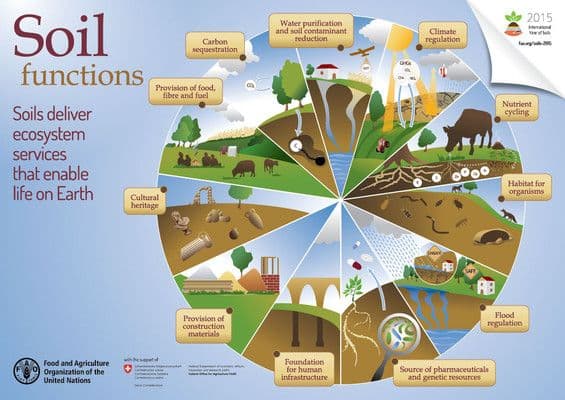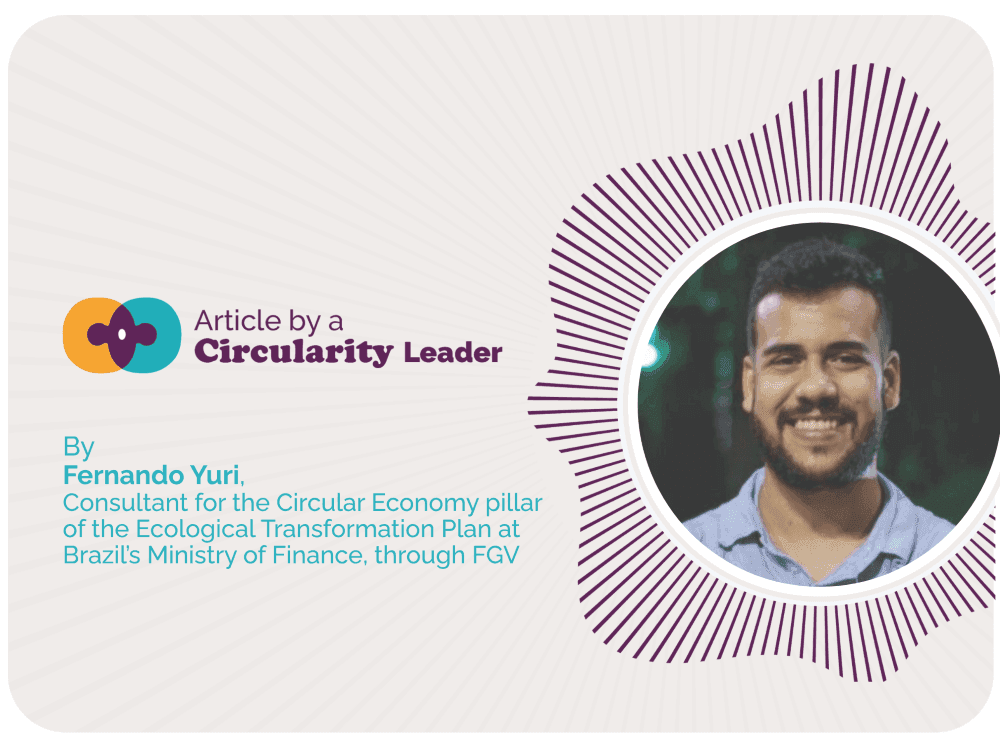
25/06/2024
Recovering the Soil, Rescuing Life
Prof. Dr. Edson Grandisoli
Soil, water, and atmosphere are common goods for all living beings and must therefore be preserved for present and future generations. Maintaining the integrity of these three components generates food, conserves biodiversity, and contributes to combating climate change.
Despite their unquestionable importance for life, the increase in effluent emissions throughout the history of human activities expansion has endangered the health of water, atmosphere, and soils in different parts of the world, leading to local extinctions and forcing people to migrate from their places of origin.
Soil degradation has become an increasing challenge worldwide. The FAO (2021) warned that about 33% of the soil is moderately or highly degraded. Additionally, 20 to 37 billion tons of the topsoil layer are lost annually due to erosion.

Environmental education plays a crucial role in empowering communities to recover soils by promoting sustainable practices that can contribute to ecosystem health, maintaining essential services, and ensuring quality of life. It involves disseminating research and good information on soil management and conservation, coupled with technical training activities, practice changes, and community mobilization to address soil degradation challenges.
Technical training is essential for communities to adopt sustainable soil management practices. It can cover training in conservation techniques such as crop rotation, the use of cover crops, composting, and agroforestry. These practices help maintain soil fertility, reduce erosion, and improve water retention. However, active community participation in soil recovery is fundamental. Through collaborative projects such as creating community gardens, reforestation plantings, and agroforestry systems, community bonds are strengthened, and the sustainability and permanence of projects are ensured.
An important aspect of environmental education is ensuring the integration and creation of dialogues between traditional and scientific knowledge. Many communities still have ancestral soil management practices that are sustainable and effective. Environmental education respects and incorporates these practices, combining them with technological innovations to create more robust solutions adapted to the local context.
Finally, but no less important, environmental education is essentially a political movement, meaning it also involves advocacy for public policies that support soil recovery, strengthening civic education. Communities can influence the creation of government programs and economic incentives for more circular and sustainable agricultural practices. Financial incentives, such as subsidies for conservation practices and payments for environmental services, are vital for large-scale implementation of these practices.
Thus, environmental education is considered a fundamental pillar for community empowerment in soil recovery. Through information, technical training, community mobilization, knowledge integration, and advocacy for public policies, communities can adopt sustainable practices that promote large-scale soil health and, consequently, a more balanced and productive environment. The joint efforts of communities, educators, and governments are essential to achieving sustainable soil management and ensuring the ecological and economic resilience of regions affected by degradation.
About Circular Movement
Created in 2020, Circular Movement is a collaborative ecosystem committed to encouraging the transition from a linear to a circular economy. The idea that all resources can be reused and transformed is the motto of the Circular Economy, the basic concept of the movement. Circular Movement is an open initiative that promotes collaborative spaces with the aim of informing individuals and institutions that a waste-free future is possible through education and culture, the adoption of new behaviors, inclusion, and the development of new processes, products, and attitudes. The work is done in partnership with Dow, a chemical, plastics, and agricultural products company based in Michigan, USA. Circular Movement currently impacts 2 million people through its activations and content.
And you? Do you want to learn more about Circular Economy?
If you are interested in learning more about this topic, access Circular Academy, the first free Latin American course on Circular Economy aimed at the general public. Together, in partnership and collaboration, we can make a difference in building a more circular planet.

